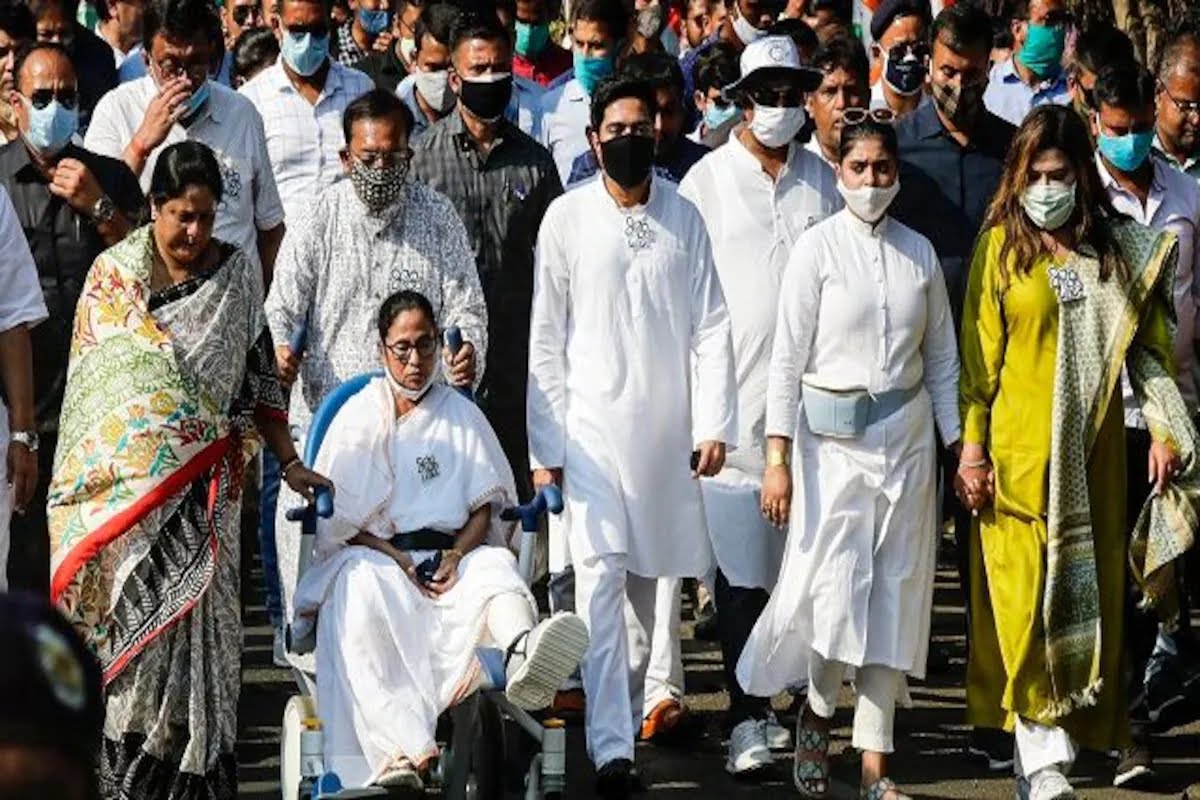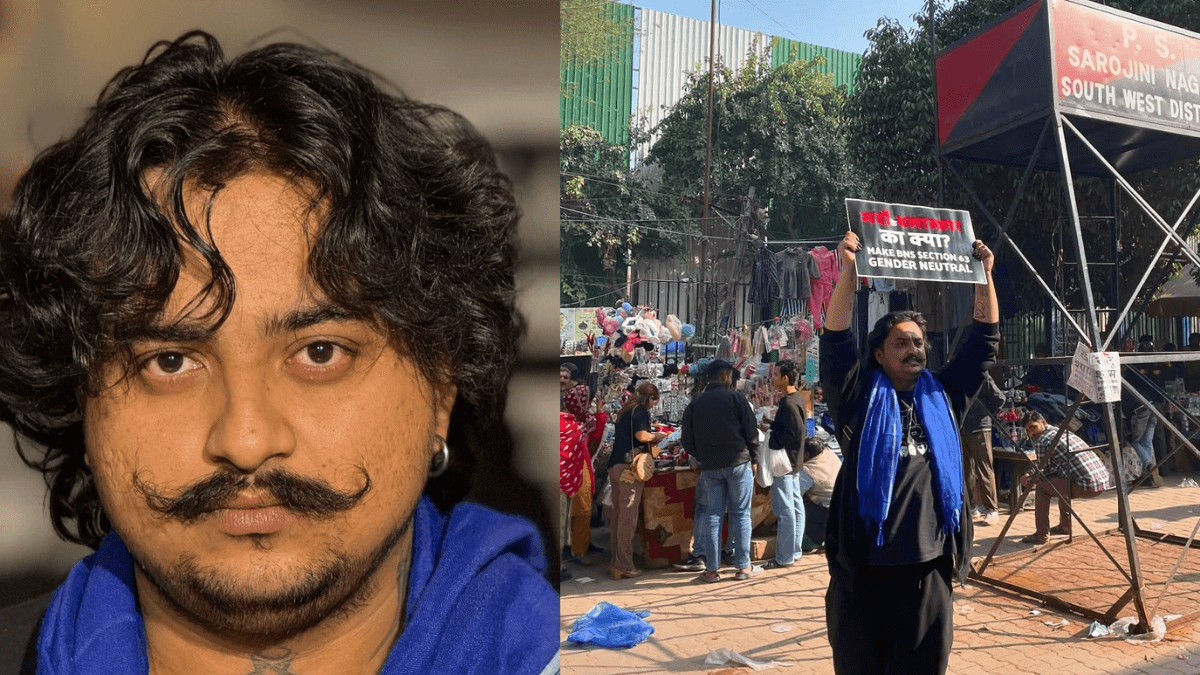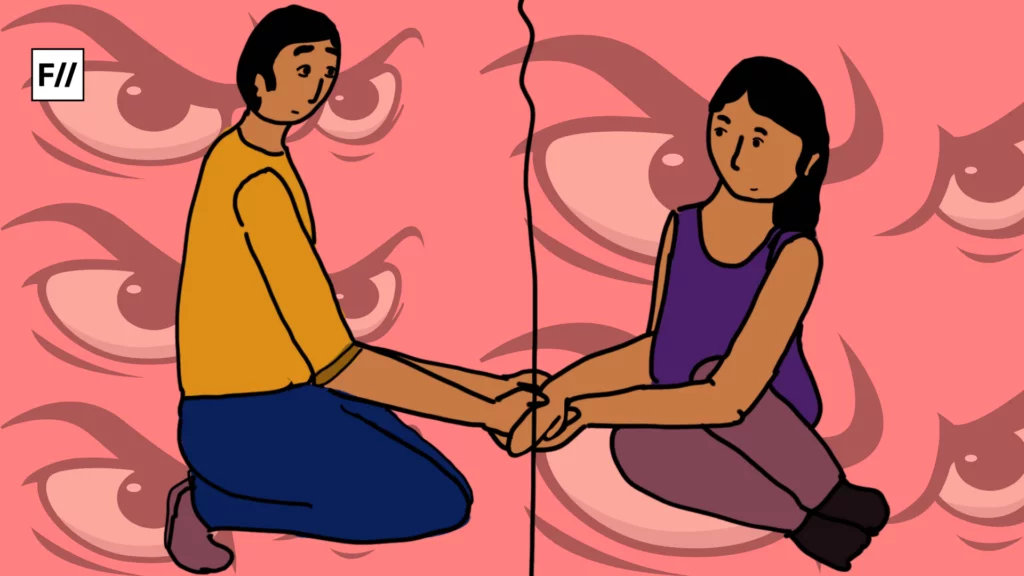After being on ground for close to 6 months with I-PAC and closely experiencing this firecracker of an election campaign, May 2’s results culminated in a whirlwind of emotions.
Election work has been exhausting, especially because of the testing times that we as humanity are going through, especially in India. Given the nature of the work, there were fixed working hours. Everything required micro-management and meticulous yet on-the-feet decision-making: For instance, a tweet jibe posted late night by an opposition party would require an immediate counter tweet. Orchestrated fake news being propagated by the Opposition could not be waited upon to be dealt with the next day: instead, it would demand immediate attention and rectification. We’d be up on our feet, trying to push content harder in the same network of voters as damage control.
Also read: Looking At Bengal Assembly Elections Through The Glasses Of The ‘Other’
Based on I-PAC’s work, which has always been data-driven, sometimes radical decisions are required to be taken. But often times, when these are suggested to the veteran politicians, we would be met with resistance to change status-quo. Often, these decisions are such that they would attempt to shake the unchecked foundation of the functioning of the party. Which is why, to negotiate and communicate with the stalwarts would require a considerable amount of negotiation and conviction. However, as we look back in time to the election results that came in, a well-deserved victory for Mamata Banerjee’s TMC, the inconveniences that were littered along the path were worth the larger gains that weighed the pocket down.
I was deployed in Uttar Dinajpur and was responsible for looking after two assembly constituencies: Kaliaganj, a Scheduled Caste-reserved seat, and Itahar. (More on their demography and their unique politics later)
We were required to tailor campaigns to suit the pulse on the ground, watching the unfolding of Duare Sarkar — the TMC state government’s initiative to ensure every one could access the government schemes by taking the schemes and its benefits to their doorsteps over the course of two months.
Attending the Duare Sarkar camps, in what was a form of participatory research and observation, we found that they were brimming with the approval and acceptance of the attendees for whom the camps were beneficial. Not to mention, the camps were, evidently, a huge success.
Attending the Duare Sarkar camps, in what was a form of participatory research and observation, we found that they were brimming with the approval and acceptance of the attendees for whom the camps were beneficial. Not to mention, the camps were, evidently, a huge success.
Bringing the schemes of the Government to the last mile, often the regions that would remain untouched by the benefits of the schemes invoked and promised by political parties, was safe to say, a masterstroke. Of course, there have been questions about the timing of the entire orchestration. Notwithstanding the debate about it being a sharp political tool, the effort ensured voters, who do not have access to newspapers or radio announcements in the rural hamlets of the state, become beneficiaries of the schemes included in the camps. Paray Samadhan was another well crafted initiative that ensured the administrative deliverables were completed on time, pushing the administrators to dirty their feet and leave the warmth of their leather chairs. This campaign consolidated the Panchayati Raj system under the blue and white umbrella.
Also read: ‘Didi…O…Didi’ — Sexism Aplenty In West Bengal Assembly Elections 2021
Through this campaign, as a consultant with a cross-party political advocacy group, I had the fortune to also interact with the elected members of the Zilla Parishad, Panchayat Samitis and the Gram Panchayats. The three-tier self governance that is housed in the Constitution of India was visibly pushed into action, and roads, parks and bridges that were the houses of the dead became alive and accessible to a large number of voters for their recreation and uses. The Bangoddhoni Jatra campaign, the Tapashili campaign, the Didir Sathi Ghore Ghore campaign, the proliferation of the collaterals of ‘Bangla Nijer Meyekei Chay’ slogan – all of these led to us getting intertwined with the party machinery, the workers and the leaders coming together on an unanimous plank, the plank to fight fascists forces lurking around what they call home.
Any political rally or Sabha organised in the vicinity of these nameless, far-off villages would be treated as a celebration, no less, an aberration from their mundane passage of life. Political parties would capitalise on this emotive outburst and organise multiple political events to capture the attention of these rural voters which would then be transfigured into votes. Herein we got our chance to practically understand and observe rural and subaltern electoral politics, breaking away from the urban politics many of us would usually be encapsulated in.
The TMC secured a win in 213 assembly constituencies, crossing its 2016 winning mark. As voters chose to keep fascist forces out of the game, it seems like I-PAC only gave a hardbound structure to the TMC’s paperback ammunition. They had all the bullets in their magazine: the developmental work done in the state, the schemes rolled out that benefit different demographies of voters in different capacities, explosive leadership who are articulate and empathetic.
All they needed was a structure and a properly organised channel to disseminate their energies, and we provided them with that. What we essentially did was backdoor politics where we set the stage, the lights, the curtains, the props and rang the bell for TMC’s vision to unfold.
Another flaw we observed in TMC was how their activities, discussions and discourses involved the usual suspects within the party, they might have tended to become oblivious to the dissent brewing on neutral grounds or the extent to which voters have been polarised by the opposition. It would seem that they were living in their own insulated bubble. As a political advocacy group, we were able to provide them with a third person’s view of the sentiments floating in a particular assembly. A neutral, unbiased view that was uprooted from the ground for them to chew on. Yet, the opposition’s increased strength was visible in how the BJP won 77 solid seats in West Bengal, even in their defeat.
A real challenge, especially owing to the convoluted communal narrative that was being fed, was Kaliaganj. In Kaliaganj, reportedly a heavily Rajbonshee (SC) dominated constituency in West Bengal, the TMC had lost by 21820 votes. This was another domain we struggled, because the population here had been effectively polarised by the BJP. All our efforts in reaching out to the voters, and trying to mould them into a secular frame of mind failed in front of the rigid Hindu identity that they were conditioned to be moulded into over the span of some years. Despite running a few campaigns, spending sleepless nights trying to figure out how to edge past communal disharmony and make the population understand the importance of choosing development over religion, nothing yielded solid results.
The newly elected TMC government has a tall task in front of itself, especially with the horrifying post-poll violence the state is witnessing now. The government needs to continue with their last mile delivery of schemes, roll out improved schemes that address every demographical recipient, in addition to ensuring that communal, fascist forces with an agenda of a monolithic Hindu identity, has no place here. In a present and future charged with speculations about government handling of the COVID-19 pandemic, especially in West Bengal which saw massive election rallies that evidently cared more about votes than human lives, the TMC government will be judged on their handling of the second wave of the pandemic. They would be expected to make vaccines available for the entire population, ramp up medical facilities and ensure oxygen is abundantly available in the State.
Image Source: FirstPost
About the author(s)
Tathagata Bhowmik is a writer and an independent singer and songwriter based out of Calcutta. He can be found on Facebook and Instagram.





If this is the kind of feminism we are encouraging, then we don’t want feminism. A feminism that engages in violence, a feminism that attempts to change the demographics of a state by engaging in minority appeasement, a feminism which plays politics over the deaths of its citizens.
If feminism is about being more machoistic than the male gentry, then we don’t want this feminism.